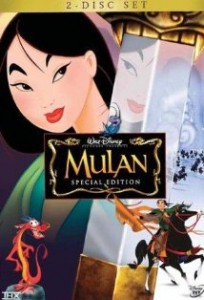 By Jae-Ha Kim
By Jae-Ha Kim
Chicago Sun-Times
June 21, 1998
“Chink-a-Chink-a Chinaman sitting on a fence; Trying to make a dollar out of 59 cents.”
My parents were mortified when their 5-year-old daughter came home from school singing this chant. My friends and I had learned to jump rope to this song from older kids who thought it would be fun to teach a bunch of kindergartners a thing or two. At the time, I had about as much concept of what a “Chink” was as I did the actual value of 59 cents.
But I was too young to see past my parents’ forced smiles.
When I was older, I learned that my folks were hurt that I was not only hearing this kind of language at school, but that I was repeating it in my own home. But they knew that if, in my oblivious state, I wasn’t upset about singing the song in the schoolyard, the older kids would tire of taunting me.
The fact is, I’m not a “Chink” or a “Jap,” but in those days, they were the words people used when they referred to an Asian person. Even in more polite terminology, strangers, neighbors and classmates would ask, “Are you Chinese?” followed by, “Are you Japanese?” followed by, “Well then what are you?”
Thirty years ago, most Americans outside of Korean War vets had never heard of South Korea, much less its capital, Seoul. So when my family and I emigrated from Seoul to Chicago in the late ’60s, we were considered foreign beyond belief.
To say that I did not see myself on television, film or magazines is an understatement. There were no prominent Asians to emulate in the media. Mickey Rooney’s portrayal of a bucktoothed Japanese photographer in “Breakfast at Tiffany’s” was lauded. Even “Charlie Chan” was played by a Caucasian, while real Asian actors were relegated to roles as houseboys and geishas.
And yet that was OK. I grew up with a strong sense of pride that my family had chosen to come to America and, in gaining our citizenship, that America had selected us, too. While my classmates spoke one language, I could speak two, though my ability to read and write in English would all too quickly surpass the fluency of my native tongue.
Still, like the fat kid who would get bullied just for being overweight, I would be singled out – usually by older kids – because until I went to college, I was one of the few non-whites in school.
Luckily, I had a good core of (predominantly white) friends who would hurl insults back at the bullies. Other times, when there were threats of schoolyard fights, they would nervously stand by my side hoping that nothing would actually happen.
But even today, when “Mulan” is being heralded as Disney’s latest animated breakthrough and kids are ordering Chicken McNuggets at McDonald’s with the special “Mulan”-inspired Szechwan sauce, Americans of Asian heritage aren’t completely accepted as true Americans.
Though I speak with a Midwestern twang, wear typically American clothes (though Italian would be my choice if my budget allowed it) and am no less patriotic than my colleagues who have paler skin, I am still often treated like a foreigner or a tourist. Granted, I was born in a different country. But my nieces, who look like me, are American-born but not quite American in society’s eyes.
Think I’m kidding? When’s the last time a complete stranger shouted out a phrase in Italian or French or Russian at you?
Complete strangers will yell out Chinese, Thai or I don’t know what else kind of Asian phrases at me when I’m walking down the street, expecting me to be flattered that they’re speaking “my language.” Many get ornery when I don’t reply back.
Even when they get a Korean word right, yelling out kimchi makes about as much sense as my shouting out cabbage to them. It just isn’t done.
And at least once a week, someone will inevitably ask me, “Hey, what are you anyhow?” or “Where do you come from?”
Sometimes I’ll answer, “My mother’s womb” or “Milwaukee.” I know what they want to hear, but I figure if they’re going to ask, I’m going to make them work for it.
On occasion, I’ll shoot the question back at them.
“Well, I’m American,” they’ll indignantly reply.
Hey, guess what?
Me, too.